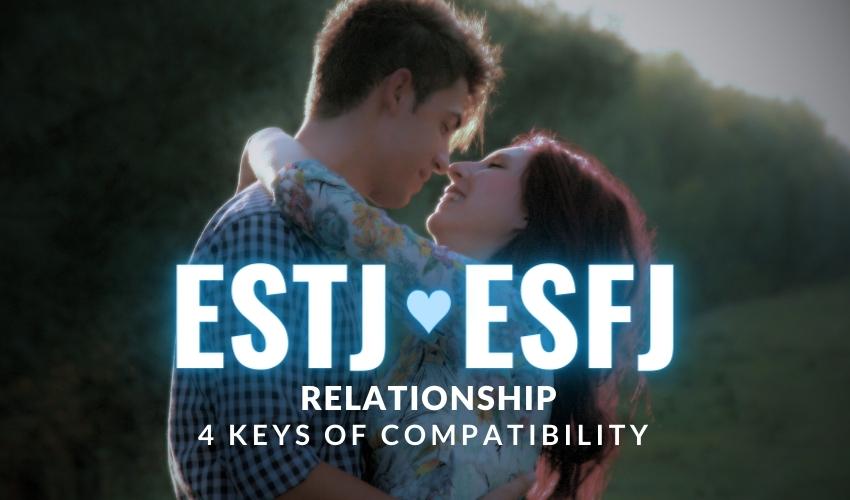
Life has it’s ups and downs and even the happiest people of this earth are bound to experience sadness in one form or another. Some things may weigh more heavily than others among the MBTI personalities. Here is a brief look at what could be the most depressing thing for each Myers-Briggs type.
INFJ
Tragic news stories that show humanity at it’s worst – In the INFJ’s perfect world, there would be no suffering, everyone would be kind to one another and evil would be non-existent. Sadly, that is not the state of the world we live in and the frequency of jarring news headlines can be a distressing reminder of that. The senseless violence and greed that goes on can be very depressing and serve to dampen INFJ’s faith in humanity.
INFP
The fact that everyone they love will be gone one day – INFPs probably think a lot about existential matters and questions and may sometimes ponder with deep dread, the day when the people they care about will no longer be with them. It can make them feel utterly lonely and sad, the thought that they could be eternally separated from the people they know. Unless they practice some kind of spiritual or religious faith, they will likely find little consolation than to just embrace the harsh fact for what it is and maybe channel their sadness through art and poetry.
INTJ
Having their time and hard work go unappreciated or down the tube – INTJs work hard and take their work seriously. They take pride in their accomplishments and abilities and it is important for them that they receive their just due. When people undervalue their work or somehow sabotage it, it can make the INTJ feel short-changed, that their effort has been in vain and that they may have possibly wasted their time. Wasted time can be devastating to an INTJ because they plan for the future and everything they do in the present generally has an intended payoff for them down the road.
INTP
Having a sense that life may very well be meaningless – INTPs are often associated with nihilism since they tend to see the contradictions and holes in almost everything. This can lead INTPs to have a distrust of many things and possibly an overly cynical and skeptical attitude towards life in general. INTPs try to make the most of their lives doing what seems meaningful to them and spend their time in an attempt, however futile, trying to make some sense of it all.
ENTJ
A lack of freedom and control over their destiny – ENTJs desire to be their own person and will not want to be under anyone’s shadow. If an ENTJ finds themselves in a situation where their liberties are restricted and they are bound to the auspices of another, it can be especially disconcerting to them. They want to chart their own course and be in as much control as possible. If they are forced to rely on someone else to make their decisions, ENTJ may likely feel depressed and dis empowered.
ENTP
Financial issues and falling behind on their responsibilities – Some ENTPs may bemoan the mundane duties and chores they must tend to as they get in the way of what they really want to do. They want be creative and to do mind work and to talk about interesting things with interesting people. ENTPs may have a tendency to procrastinate and be neglectful in managing some of their adult duties which can sometimes lead to troubling consequences for which they have only themselves to blame.
ESTJ
A lack of respect and success in their lives – Having a good standing with the world and cultivating a strong reputation is important to ESTJ types and so if they suffer severe damage to their image or lack thereof, they may become emotionally stultified. ESTJs may feel disillusioned without sufficient status or a respectable role to play.
ENFJ
Feeling ostracized or that they have been a disappointment to others – ENFJs may get down on themselves over what they feel may be a failure to live up to their sense of responsibility to others. Criticism can really take the wind out their sails which is probably why they try so hard to live up to their personal standards and ideals however lofty or unrealistic they might seem.
ENFP
A lack of purpose in their lives – ENFPs derive fulfillment through work in which they can have a voice and be creative. Furthermore, they desire a variety of challenges and new experiences to keep them interested. They want to feel like they are growing and working toward something substantial and meaningful but if their lives start to stagnate and the flow of fresh opportunities dries up, it can demoralize ENFP and make them feel lost and without direction.
ISTJ
A lack of structure and function in their lives – ISTJ’s sanity depends on knowing what to expect and having a comfortable routine and plan of action to follow. Disruptions to their regimens and being forced to improvise or figure things out in unfamiliar circumstances or environments can make the ISTJ feel like they’ve been thrown to the wolves. Having to deal with constantly changing circumstances and unpredictable or unreliable things may have a demoralizing effect on ISTJ’s psyche.
ISFJ
Having no one to care for or feeling unneeded – Even though they’re introverted, human connection is very important to the ISFJ person. They are likely to feel a bit empty when they don’t have a supportive role to play or people around them who genuinely appreciate what they do. Losing a loved one or having a limited ability to help someone close to them who is suffering can also burn them out emotionally and leave them deeply depressed.
ESFJ
A lack of friendships and people to talk to – Friends and family are very important as part of ESFJs sense of identity and need for belonging. They are very social and so when they find themselves in situations with limited human contact or among people who do not include them or make them feel welcome, it can be very hard for the ESFJ. ESFJs do not like spending excessive time alone and if they cannot find anyone to hang out with them, it can demoralize and sap their spirit.
ISTP
Not having the means to make things or do repairs – Idle hands are the devil’s playground and for ISTPs it is a cause for boredom. ISTP are very crafty and curious and so they are often able to find something to do. They are likely to have some hobby or interest in which they immerse themselves deeply and so if they are deprived of the means to practice those things, they may feel gutted. ISTPs can deal with most inconveniences and troubles as long as they have their objects to keep them preoccupied.
ISFP
Feeling cut off from nature and things that are beautiful and natural – ISFPs desire to feel close to all things beautiful and they have a special appreciation for health and nature. They may get depressed when they feel unhealthy or unattractive as a result of poor habits and lifestyle. ISFPs desire freedom to explore and discover the beauty in the world and so being in any situation in which they feel boxed in or confined is bound to make them restless and unhappy.
ESFP
Feeling like they are missing out on life – ESFP is full of life and wants to make the most of theirs and sometimes this can result in a YOLO “anything goes” type of lifestyle. ESFP may be prone to envy if they are not getting what they feel they deserve. They may get depressed when comparing themselves with someone more successful than they or has something that they desire intensely. If substance abuse enters the picture, it may become a pity party full of self loathing and self sabotaging decadence.
ESTP
Being unable to live life fully and distinguish themselves – ESTP wants to make a name for themselves and accomplish whatever they set their sights on. They are full of vitality and drive, with an appetite for adventure and so being incapacitated and unable to act out their will or ambitions can render them depressed. Suffering losses can get them down but their competitive spirit allows them to come back with a vengeance. Being able-bodied and self sufficient is highly important to ESTP because otherwise, life would be incredibly boring and depressing for them.
- related posts:
- Why Each Myers-Briggs Type Is Dangerous
- Why Each Myers-Briggs Type Likely Quit Their Job
- How Each Myers-Briggs Type Behaves When Upset
- How Each Myers-Briggs Type Reacts To Compliments
- What Each Myers-Briggs Type Is Like During Childhood
- ISFJ and ISTJ in love: 5 Essential Dynamics of their Relationship - February 24, 2024
- ENTP and ENTJ in love: 6 Critical Dynamics of Their Relationship. - February 18, 2024
- ESTJ and ESFJ in love: 4 Key Aspects of their Relationship. - February 12, 2024





